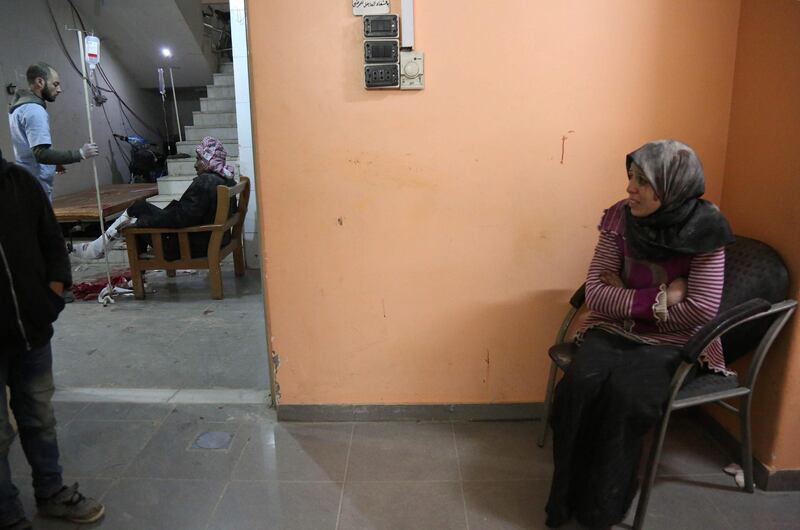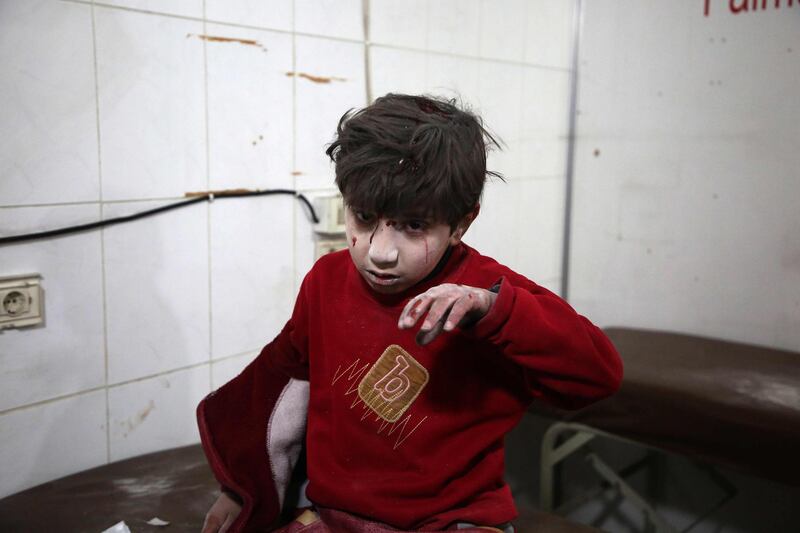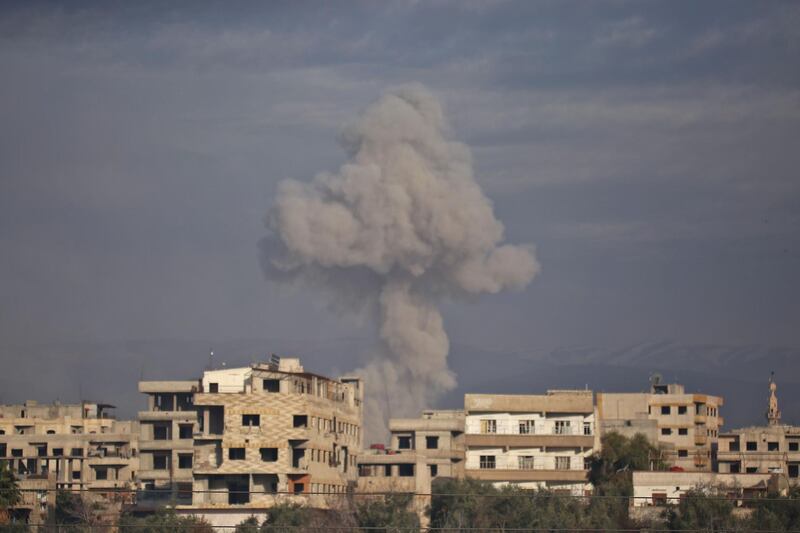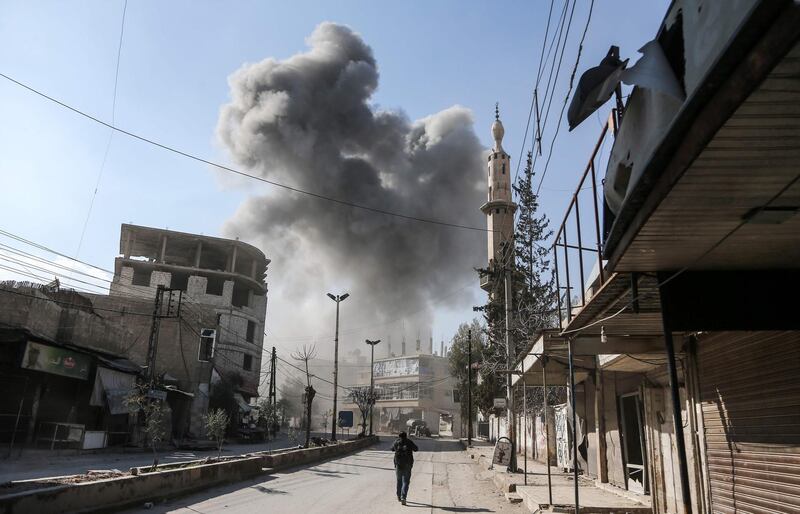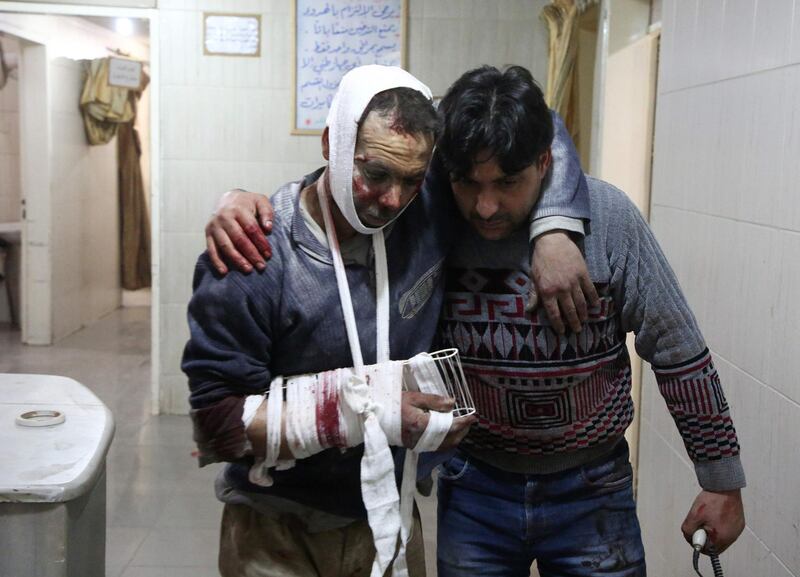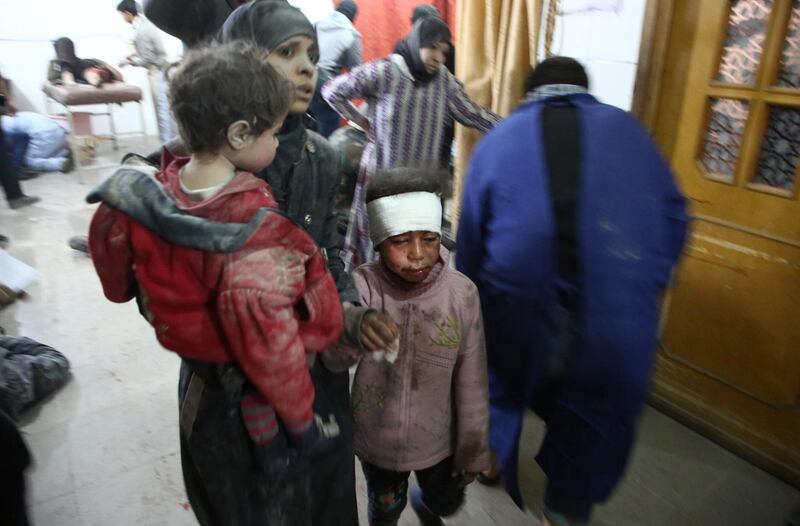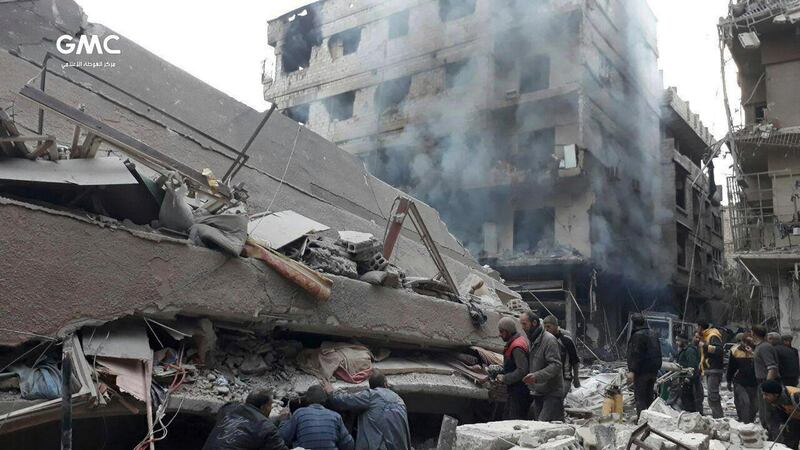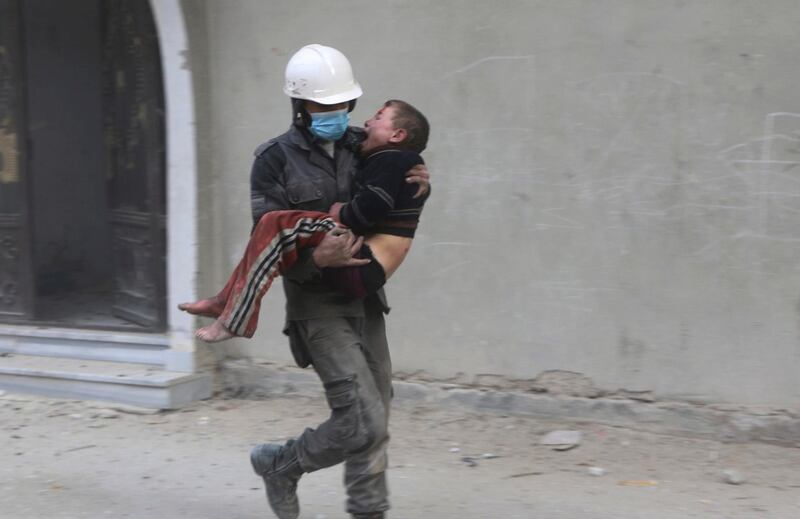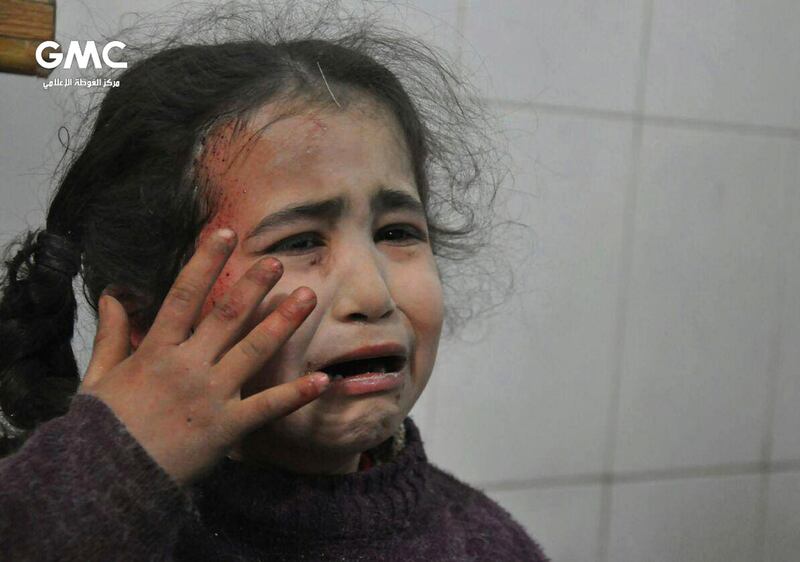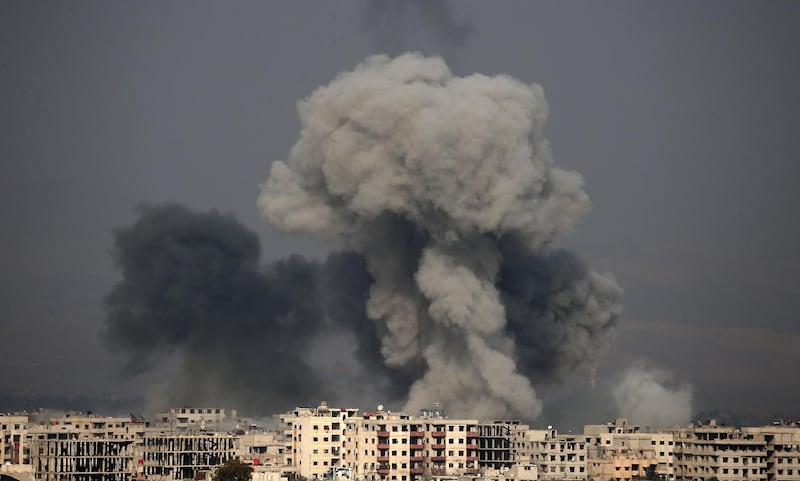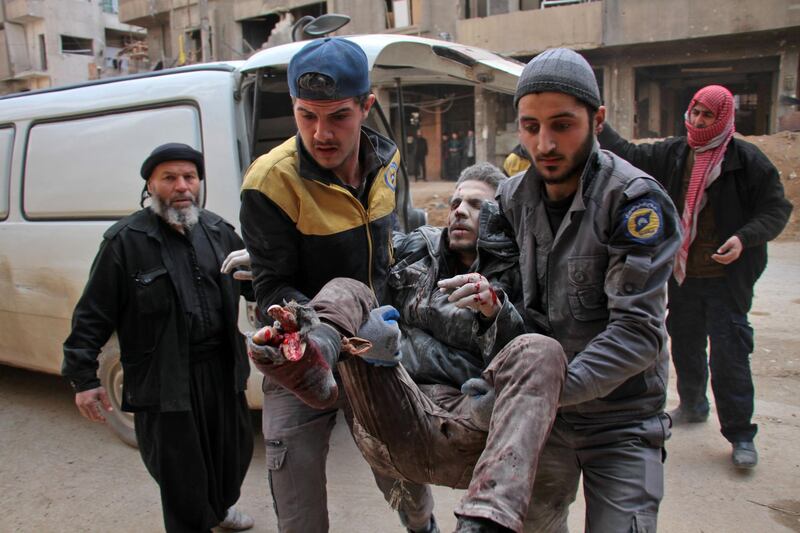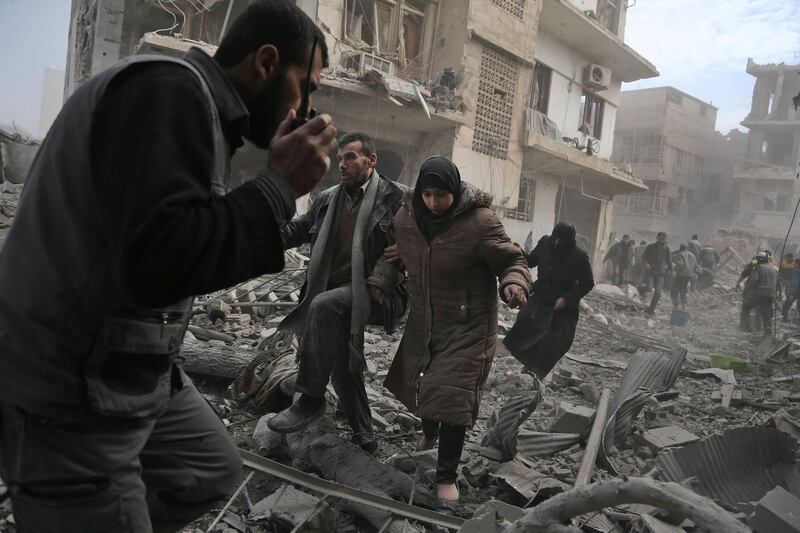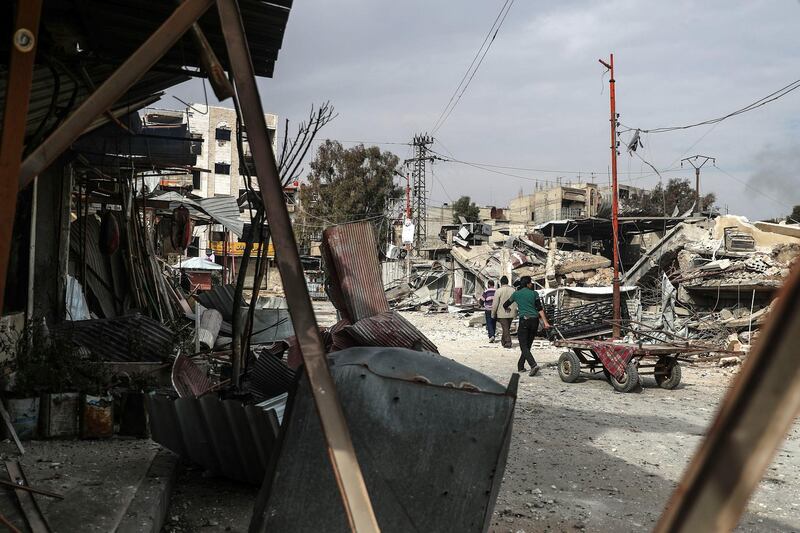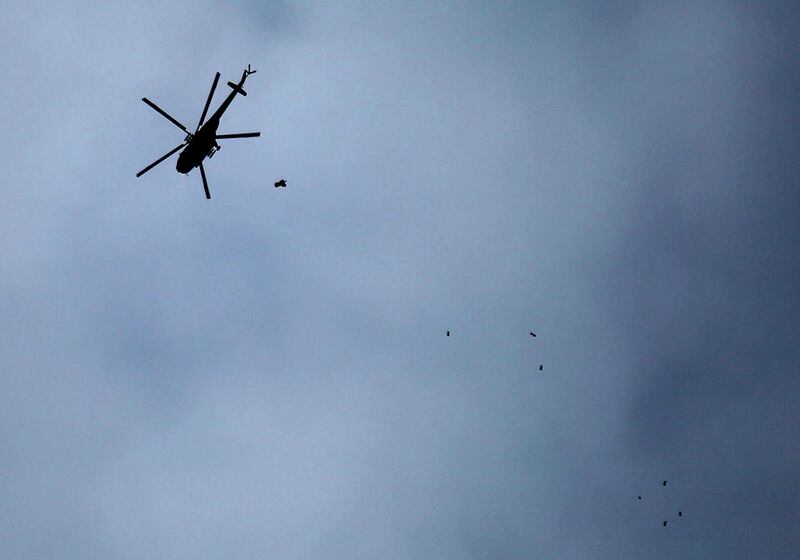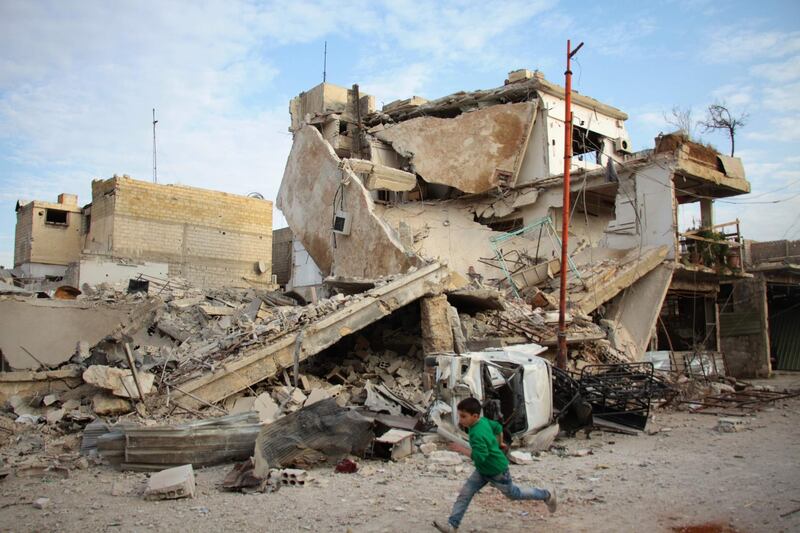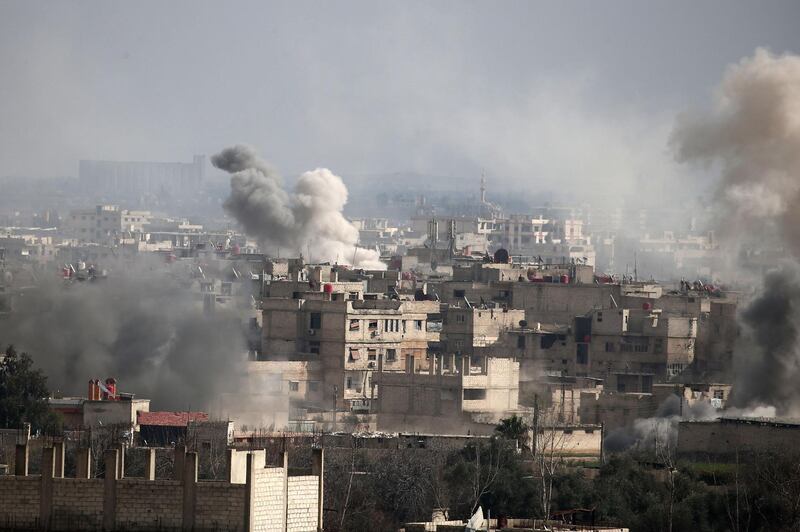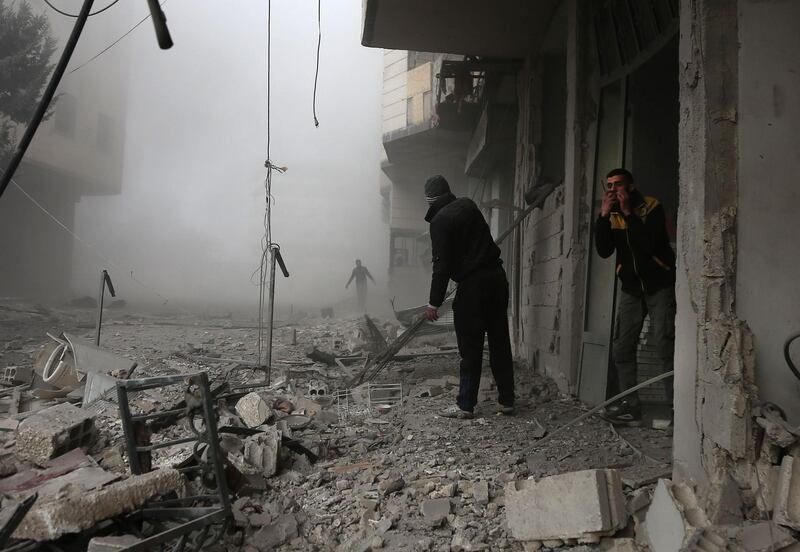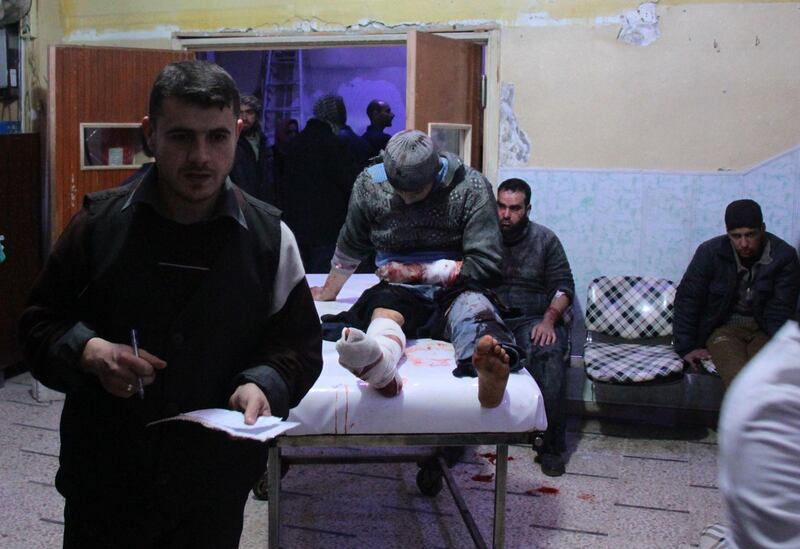The US strongly condemned recent attacks on Eastern Ghouta, blaming Russian and Syrian regime strikes for the escalating violence in the rebel-held enclaves.
"The targeted destruction of medical facilities in Eastern Ghouta and the continued use of siege tactics, which starve Syrian civilians and prevent humanitarian access, are especially troubling," said the release.
In the statement the US Press Secretary calls Bashar Al Assad's government a "deplorable regime" and urged Damascus to "stop committing additional atrocities and must not be further abetted by backers in Moscow and Tehran."
A Syrian regime air campaign has killed almost 300 civilians in three days in the eastern suburbs of Damascus, intensifying President Bashar Al Assad's efforts to reclaim one of the country's last rebel-held enclaves.
On the same day in which the country's capital reached unprecedented levels of violence, a new batch of pro-Damascus forces arrived in the northern region of Afrin in support of Kurdish militias fighting against Turkey.
The spokesman for President Recep Tayyip Erdogan on Wednesday warned of “serious consequences” for any Syrian government forces backing the People's Protection Units (YPG) - a Kurdish militia they equate to the outlawed Kurdistan Workers' Party, or PKK.
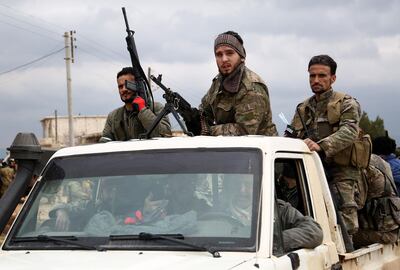
"Any step by the regime or other elements in this direction will surely have serious consequences," Ibrahim Kalin told reporters.
The Syrian government has not had a considerable presence in Afrin since 2012 but deployed forces on Tuesday in support of the YPG, as Turkey pressed ahead with its offensive to drive the Kurds out of the canton. Turkish forces reportedly shelled the area in response.
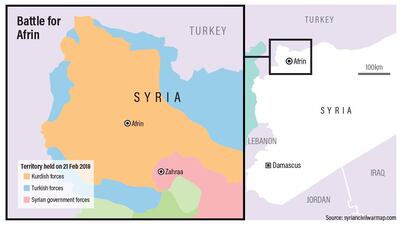
On Wednesday, the Turkish military and allied Syrian rebel militias had nearly captured the entirety of the Syrian side of the Turkey-Syria border near Afrin. A victory would give Turkey a contiguous buffer zone inside Syria stretching some 150 km across northern portions of Idlib and Aleppo provinces.
The statement by Mr Erdogan’s spokesman did little to add clarity to one of the most complicated episodes in Syria’s nearly seven-year-old civil war.
_____________
Read more:
Editorial: Words haven't failed Syrian children; human compassion has
Syria is becoming a black hole of Cold War entanglements
_____________
The YPG is considered both a terrorist group by Turkey and an ally against ISIL by the US. It has also maintained a stable relationship with the Syrian government, which largely withdrew its armed forces from Kurdish-controlled areas in 2012 to focus on fighting rebels elsewhere, leaving those areas in control of the YPG.
In return for relative autonomy, the YPG and its political branch the PYD, have often stifled anti-government sentiments in areas under their control, while also cracking down harshly on political challenges to their own control.
"Every step taken in support for the YPG terror organisation would mean (any forces intervening on the Kurdish militants' side) are on the same level as terror organisations. And for us, that would make them legitimate targets," said Mr Erdogan's spokesman.
A Syrian journalist in Afrin said that the arrival of pro-government forces had so far not affected the fighting around the city, where clashes continued, or Turkish air and artillery strikes closer to the city.
"The situation is normal," the journalist told The National. "The shelling is continuing."
The international nature of Syria’s conflict was also evident in Damascus' Ghouta on Wednesday, when the Russian government, which frequently carries out airstrikes in support of the Syrian government, denied it had been involved in this week’s strikes.
The Syrian Observatory for Human Rights, which monitors the county’s civil war, said the strikes have killed at least 274 people since Sunday in the rebel-held suburbs. Eastern Ghouta has been under rebel control and a government siege for more than five years.
The siege intensified last year when government forces cut one of the last supply routes into the area. Between 300,000 and 400,000 people are affected, with an increase in malnutrition rates and hundreds of deaths from lack of proper medical care or complications from treatable conditions.
The last three days have seen the bloodiest wave of strikes on the enclave since the start of the civil war in 2011.
UN Secretary-General Antonio Guterres on Wednesday called for an immediate halt in fighting.
"My appeal to all those involved is for an immediate suspension of all war activities in Eastern Ghouta allowing for humanitarian aid to reach all those in need," Mr Guterres told the UN Security Council.
The siege has restricted access to medical supplies, while three clinics were hit and put out of service this week, overwhelming medics.
The hospital in the town of Arbin, east of Ghouta, was hit twice on Tuesday and the Observatory said Russian warplanes had carried out the strike.
The Kremlin on Wednesday denied any involvement in the strikes and rejected reports to the contrary as "groundless accusations."
The International Committee of the Red Cross asked on Wednesday for access to Eastern Ghouta.
"The fighting appears likely to cause much more suffering in the days and weeks ahead, and our teams need to be allowed to enter Eastern Ghouta to aid the wounded," said Marianne Gasser, ICRC's head of delegation in Syria.
